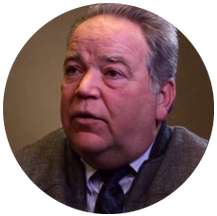Numerous research studies find that spouses of problem gamblers often feel angry, depressed and “distant” from the gambler.” (Journal of Gambling Issues, Issue 31, 2015)
And no wonder. Pathological gamblers may lie, cheat and even steal to continue feeding their addiction. In fact, a harsh but commonly repeated question among those dealing with this disease asks, “How do you know an addict is lying?” Answer: “His lips are moving.”
Sadly, deception constitutes a very real part of the mental health disorder known as addiction, regardless of whether the pathology in question relates to drugs, alcohol, food, sex or betting.
Why does someone lie to those they love? Rationales vary — and none of them necessarily excuse the behavior.
Sometimes addicts remain stuck in denial, unable to admit the true depth and breadth of their problem to anyone, even those they love. Think of it like the game many of us learned in childhood when we feared the “bogeyman” in the closet. We lulled ourselves into believing that if we simply close our eyes and pretend HE doesn’t exist, our greatest fears would evaporate. Even otherwise strong, capable adults can default to this thinking.
Some addicts are convinced that they are just one roll away from redeeming themselves and overcoming their “temporary” mistakes. Their self-talk revolves around how they will quickly recoup all losses on this next wager so why upset my spouse right now?” They cling to the misguided, self-deluding belief that one more bet really will be the “big win” that wipes the slate clean. In fact, it is really just an elaborately fashioned permission slip to keep gambling.
Others deeply fear the consequences of coming clean. “Will my spouse leave me? Could I go to jail? How will I face my friends, co-workers and neighbors – never mind my kids?” Truth equates to public disclosure and the real possibility of embarrassment, ridicule and even rejection.
While it’s difficult for many to understand, addicts typically live everyday caught in a downward spiral. Their anxiety about their inability to control the problem behavior and its consequences causes stress, raising cortisol levels in the brain. Cortisol results in all of the symptoms we associate with being “stressed out,” racing heartbeat, sweaty palms, inability to concentrate and more. It’s actually extremely detrimental to brain and overall health to bathe in frequent doses of cortisol, leading to numerous illnesses and even killing certain brain cells.
So, the brain, constantly attuned to its own chemical balance, starts pushing for dopamine and serotonin to counter the cortisol.
And guess what solves the brain’s chemical dilemma? Gambling triggers a flood of dopamine and serotonin. The gambler feels content, happy, and even euphoric – until her luck runs out again.
It is important for families to understand the complex and connected physical and emotional issues faced by the addict. It offers context and some basis for understanding, if not empathy.
However, greater knowledge doesn’t in and of itself erase or mitigate the rage, hurt and sadness of being lied to by someone we love. The constant turmoil of living with addiction can cause real damage to the physical and mental wellbeing of everyone affected by it.
Family members can benefit from the ability to address their concerns in a safe, confidential environment and learn coping strategies that improve their peace of mind and help them better respond to financial and other troubling realities – whether the gambler seeks help or not.
Please let Maryhaven know if we can serve you or your loved ones. Franklin County families may be eligible for free or reduced price treatment, thanks to funding provided by the Franklin County Alcohol, Drug and Mental Health Board. Contact Maria Garner or me at 614/324-5425.

